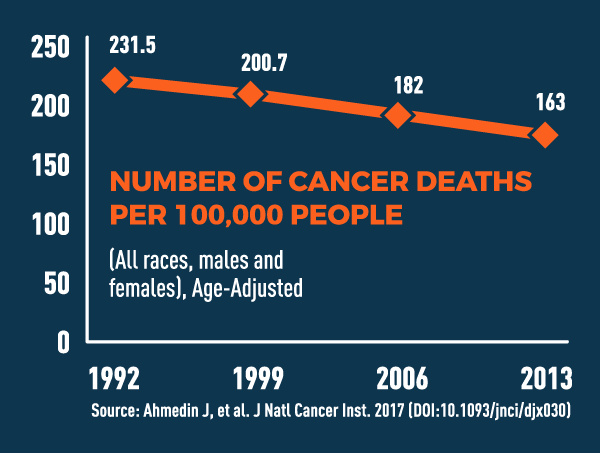https://www.cancer.net/sites/cancer.net ... meline.pdf
As a result of the nation’s investment in cancer research, more people are surviving cancer than ever before
• Two out of three people live at least five years after their diagnosis, up from roughly one out of two in the 1970s.
• The nation’s cancer death rate has dropped 16 percent since the early 1990s, reversing decades of increases.
• Today, highly tailored, more effective treatments target the genetics of each cancer, and each patient. • Better ways of managing nausea and other side effects are enabling patients to live better, more fulfilling lives.
•Revolutionary progress against some cancers shows what is possible. Five-year survival rates for breast cancer, testicular cancer and childhood leukemia are now over 90 percent
https://www.asco.org/research-guideline ... s-timeline

https://www.cancer.gov/news-events/canc ... -to-nation